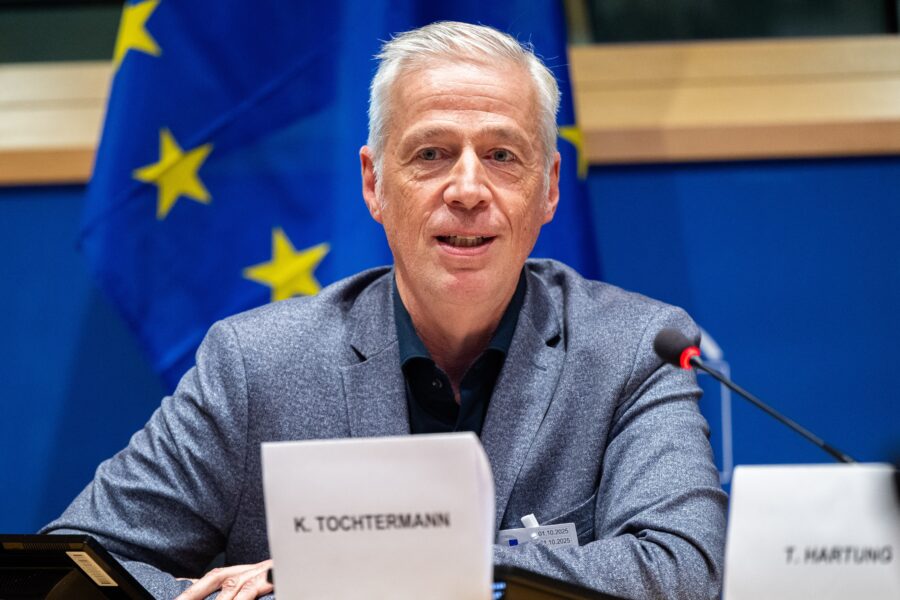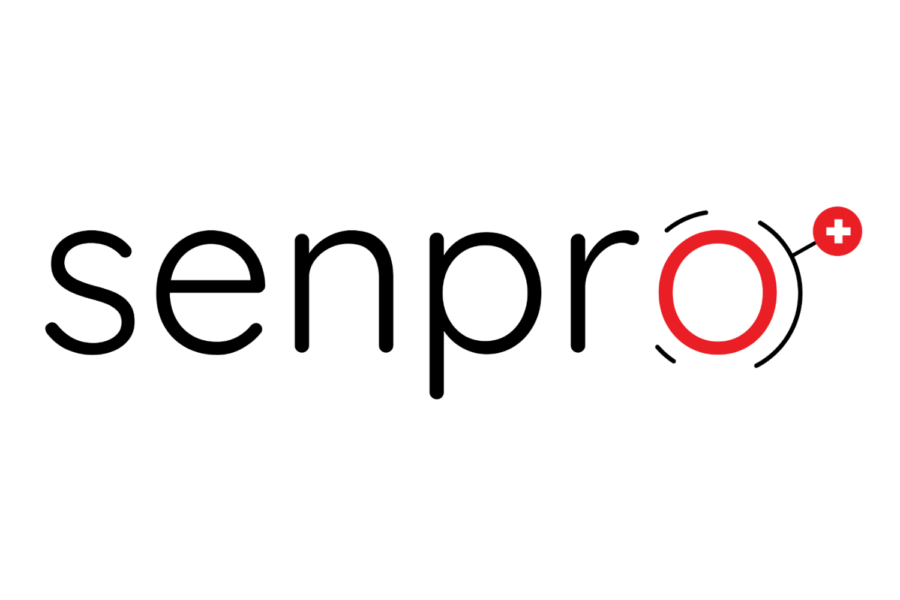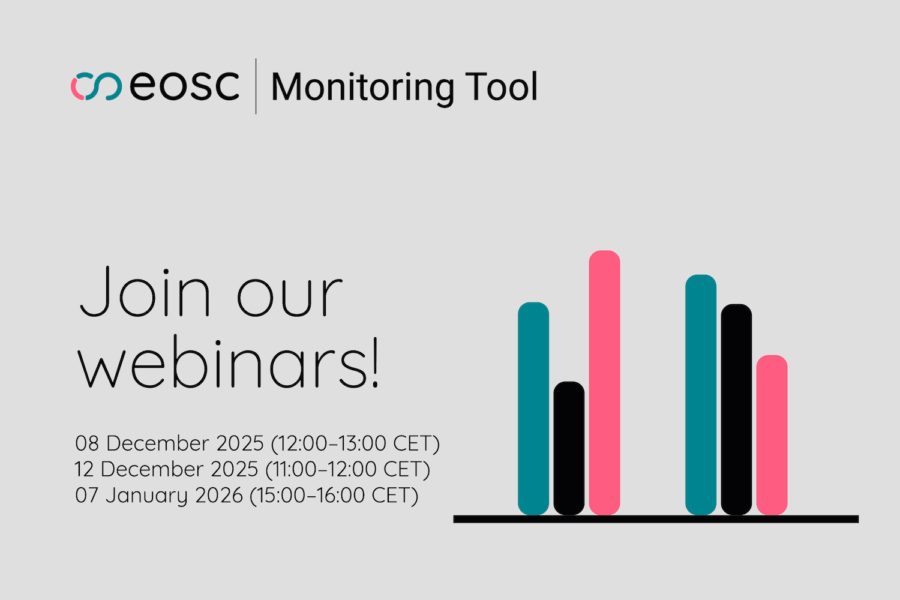In this in-depth interview, Victor Vevera and Dragoș-Cătălin Barbu from the National Institute for Research & Development in Informatics (ICI Bucharest) share insights into Romania’s ongoing efforts to align its national research landscape with European policies.
As the Mandated Organisation for Romania, ICI Bucharest engages various national and regional stakeholders to enhance collaboration in Open Science. It maintains a close working relationship with the government to support the development of relevant policies and research projects.
This interview was conducted by Natalia Galica (NCN Poland) and Isabel Caetano (EOSC-A). It is the seventeenth interview in a series coordinated by the EOSC Focus project, which amplifies the voice of the community and highlighting contributions of the EOSC Association’s Mandated Organisations.
What is the role of your organisation in the EOSC Association?
The National Institute for Research & Development in Informatics (ICI Bucharest) has a long history of involvement with EOSC-A, having initially served on the governing board and now acting as Romania’s Mandated Organisation. Our focus is to translate European developments into Romania’s national context. We monitor Romanian policies and their alignment with European standards.
We try to engage communities and stakeholders, including government bodies, universities, and industry partners, to increase their representation in the overall success of EOSC. We support the goals of data sharing and collaboration across Europe. We make stakeholders aware that membership in EOSC-A provides access to a network of European research institutions, partnership opportunities, and possibilities to develop Open Science projects on the national and European levels.
Our efforts have been supported through regional projects, such as NI4OS, and have resulted in the establishment of the Romanian National Open Science Cloud Initiative (RO-NOSCI), coordinated by three organisations: ICI Bucharest, in charge of technical aspects; the Executive Agency for Higher Education, Research, Development and Innovation Funding (UEFISCDI), responsible for organisational aspects, and National Institute for R&D in Physics and Nuclear Engineering (IFIN-HH) involved in Open Science.
How do you promote the EOSC ecosystem in Romania and adapt relevant developments to the national level?
We closely collaborate with the Romanian Executive Agency and the Ministry of Research, Innovation and Digitalisation, to support the adoption of the National Plan for Research, Development and Innovation 2022-2027, which explicitly incorporates Open Science (Open Science) as the guiding principle. Through RO-NOSCI, we engage directly with stakeholders to build capacity and raise awareness, for example by organising workshops on open data, Data Management Plans for digital repositories, and technical support.
What do you suggest is most effective for engaging non-members? What approaches have been successful in Romania?
The most impactful examples have been cases presenting best practices of public institutions that use their data as openly as possible. One of such examples is IFIN-HH, which utilises tools to makes use of OS initiatives. We share best practices across different sectors, which makes potential stakeholders more interested and prompts them to reach out to us for support in making their data as open as possible.
Could you assess regional collaboration in Romania?
It makes more sense for us to be involved in regional rather than European projects, because of differences in policies and strategies. Focusing on regional initiatives allows for more practical application and greater success.
The regional dimension is very powerful. We collaborate with all our neighbouring countries and maintain close relations with the Secretary General of the Government and the Ministry, which makes it easy for us to involve them in in regional initiatives.
What are the most relevant national policies and funding schemes available for developing EOSC in Romania?
On 15 November 2018, the Romanian government approved the 2018-2020 National Action Plan as part of the Open Government Partnership. We have the national framework in place, i.e. National Strategy on Research, Innovation and Smart Specialization 2022-2027, which includes a section dedicated to open access to research results. The National Plan for Research, Development and Innovation 2022-2027 incorporates OS as a key principle, promoting open access to research data and publications and aligning national research efforts with European OS standards. We worked with our colleagues on the White Paper on the Transition to Open Science 2023-2030.
Funding has primarily been provided through European projects, securing the national contributions for EU-funded programmes. The Ministry for Research, Innovation, and Digitalisation provides policy support and coordination, facilitating the alignment of national strategies, and ensuring that institutional resources are directed towards the development of OS infrastructures.
How about policies at the level of research performing organisations?
Open Science is a guiding principle and thus only a recommendation. It is not mandatory. However, it will likely become mandatory in the future. It is already a requirement in European programmes to make research data open. This will be transferred into national policies and nationally funded projects soon. Ultimately, it will be mandatory to make research data as open as possible.
What are the strengths of ICI Bucharest in relation to EOSC?
We have been involved in EOSC-A, EuroHPC and cybersecurity initiatives for a long time, which gives us a broader picture of the entire ecosystem. The Ministry and the Secretary General of the Government have made us responsible for coordinating EOSC-related activities in Romania.
Our national consortium RO-NOSCI consists of 27 members, primarily universities and research-performing organisations. UEFISCDI, through the Open Science Knowledge Hub Romania, serves as a national support desk for OS.
Who are the main stakeholders in Romania?
The Ministry of Research, Innovation, and Digitalisation is a crucial policymaker and coordinator of national research and innovation strategies, including the adoption of OS policies.
RO-NOSCI is a key initiative focused on creating a federated infrastructure for data sharing and collaboration among Romanian research institutions. It serves as a platform for engaging stakeholders and implementing OS practices. Through the Open Science Knowledge Hub, UEFISCDI supports the implementation of OS within the national research and innovation system. UEFISCDI also acts as our national representative to OpenAIRE and the Research Data Alliance (RDA).
Additionally, there are many private entities working in the research field, and the Ministry is developing a dedicated platform for them.
What is your perspective on the development of EOSC in Romania and what challenges do you see?
The most important priority for us is to appoint a new representative to the EOSC Steering Board. At the national level, we try to engage as many stakeholders as possible, but we currently have only two Members in EOSC-A (ICI Bucharest, and University Politehnica of Bucharest) and one Observer (UEFISCDI). We are working to bring more stakeholders on board, but it is a challenge to cover the membership fee. Many are interested in Observer status due to the lower fee. Therefore, funding needs to be more adequate and sustainable for the development of EOSC.
But even if stakeholders are not Members or Observers of EOSC-A, we still provide them with information about the latest initiatives and developments.
It is difficult to bridge the skills gap among researchers. We need to support staff in using digital tools and data management practices. We provide researchers with foundational skills for research data management. It is a challenge, as it is a cross-disciplinary field that requires the right knowledge and expertise.
On the policy side, although there are strategic documents in place, there can be fragmentation and a lack of coherence in their implementation since compliance is not currently mandatory.
What should be considered when preparing the post-2027 scenario?
Ensuring the long-term sustainability of OS infrastructures and initiatives is crucial. This includes not just initial investments, but also continuous funding for maintenance, and support for the infrastructures, tools, and services that facilitate OS.
We will see how national and European funding can bring together this large system of nodes within the EOSC Federation that is being built up. However, it is still too early to see which nodes will be included and how they will be funded at the national or European level. Aggregating nodes into regional nodes could be a useful approach.
Could you provide examples of good practices that demonstrate the impact of EOSC in Romania?
The NI4OS project was a big success. It allowed us to organise workshops and trainings for beneficiaries in Romanian and the surrounding region. The project was a very good example of regional involvement, bringing together all the expertise in this field. Various Romanian universities and research institutions, such as the University of Bucharest or Babeș-Bolyai University, participate in OpenAIRE initiatives, promoting open access and data sharing. We have a map similar to a competence map that highlights institutions working to implement OS.
In the Strategic Framework for OS, there are clear guidelines and actions for institutions, raising awareness and building consensus between stakeholders.
What international projects and initiatives do you consider strategic?
I think the most strategic one is the EuroHPC partnership, because it aims to provide us with computational capabilities and large-scale data analysis. It needs to align with EOSC on various levels.
The Council Regulation (EU) 2021/1173 on establishing the EuroHPC states that the EuroHPC federated ecosystem will be set up to foster close cooperation with other European initiatives like EOSC. Such collaboration will contribute expertise in digital transformation and support joint objectives.
You work a lot on cybersecurity and AI. How do you see EOSC supporting AI development?
EOSC must support the development of new technologies, because they are the future. This is the main topic we discuss with our partners. We collaborate with industry, which is primarily interested in data for training AI models. If data is not open, it is very hard for them to find the right models and enhance their reliability. Without the necessary data to train models and launch them on the market quickly, companies lose the battle. This is the current vision of the industry.
The research sector and industry are influenced by many different organisational cultures. How can we ensure that collaboration is possible?
By establishing a clear protocol for collaboration. The cultures are not so different. It is easy to find a common point of view, as ultimately, everybody wants to make money.
ICI Bucharest operates under the coordination of the Romanian government, yet it is self-funded. We follow a business model, but at the same time, we support our government in developing policies and programmes and promoting research projects.
We maintain close ties to industry and the funding schemes on European and national levels. Having coordination roles in national and European governing bodies has given us an advantage in the decision-making processes. We have an industry eager to bring products to market as quickly as possible, but we also have to secure proper funding for our projects.
About the National Institute for Research & Development in Informatics
The National Institute for Research & Development in Informatics (ICI Bucharest) was established in 1970 and is the most important institute in Romania for research, development and innovation in information and communication technology (ICT). ICI’s mission is to promote excellence in research and innovation to foster the development of knowledge-based economy in Romania and to enhance integration into the European and international research landscape.
About Adrian-Victor Vevera
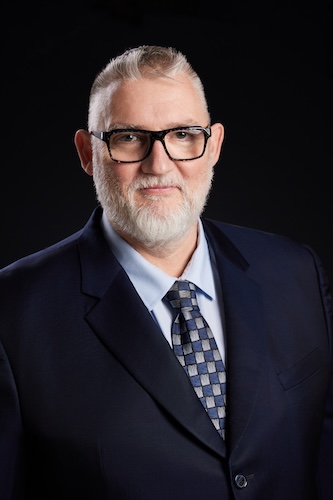
Adrian-Victor Vevera is the General Director of ICI Bucharest. He is a first-degree researcher with doctorates in military and informational sciences, information and national security, and industrial engineering. He is recognised internationally for his expertise in national security, cybersecurity, IoT, and high-performance computing, holding various high-level roles in state organisations. He is a member of numerous global bodies, including the European Security and Defence College, EOSC Association, ICANN, and is also the Vice President of ICA. He is the president of IF Idea Factory Think Tank and the chairman of the Digital Innovation Summit Bucharest (DISB). He has made significant contributions to critical infrastructure resilience, influencing both policy and industry standards.
About Dragoș-Cătălin Barbu
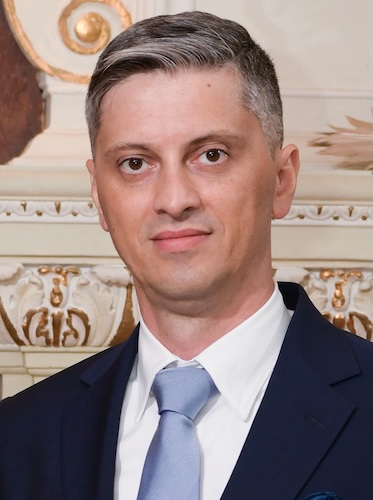
Dragoș-Cătălin Barbu is a substitute delegate of ICI Bucharest in the EOSC Association and has represented Romania on the EuroHPC-JU Governing Board since 2019. He has been a member of the ICI Bucharest Scientific Council since 2017 and is an associate lecturer at the University of Economic Studies in Bucharest. With over 21 years of research experience in ICT, his expertise spans cloud computing, high-performance computing, and Open Science. He has coordinated numerous national and international projects and authored over 35 publications, including a book on cybersecurity.




